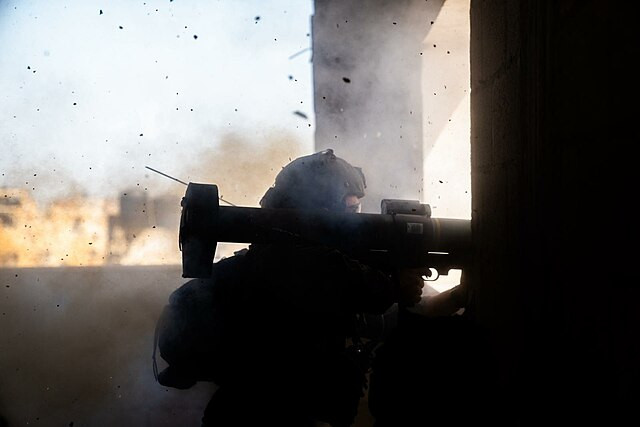Tensions between Israel and Hezbollah escalated significantly this week, as both sides engaged in cross-border attacks following a series of explosive incidents that have left dozens dead and thousands injured. The situation, which has been steadily deteriorating since the start of the Israel-Hamas war in Gaza, took a dramatic turn after hand-held devices belonging to Hezbollah members exploded over two consecutive days, leading to widespread chaos and violence in Lebanon and across the border in Israel.
On Tuesday, a coordinated attack targeted pagers used by Hezbollah members, resulting in at least 12 fatalities and thousands of injuries. The explosions, reportedly orchestrated by Israel, struck both southern Lebanon and parts of Syria, marking a new phase in the ongoing regional conflict. Just one day later, additional detonations occurred, this time involving walkie-talkies used by the militia group, further escalating the crisis. Hezbollah responded by launching anti-tank missiles and drones into Israel, injuring at least eight people and setting off fires near military positions in the Upper Galilee region.
The Israeli military retaliated by striking Hezbollah positions, including infrastructure and weapons storage facilities in southern Lebanon. According to Israeli Defense Minister Yoav Gallant, the conflict has now entered a "new phase," with resources and military units being redeployed to the northern border to counter Hezbollah's increasing aggression. The exchanges of fire between the two sides, which have been ongoing since Hamas launched its assault on Israel on October 7, are threatening to evolve into a broader regional confrontation.
Hezbollah's missile barrages and drone attacks on Israel in support of Hamas, both of which are backed by Iran, have contributed to mounting fears of a wider conflict. Since the outbreak of violence in early October, Hezbollah has launched thousands of missiles and drones at Israeli targets, prompting a series of retaliatory airstrikes by Israel. The latest attacks on Hezbollah members, which many believe were carried out by Israel's intelligence agency Mossad, have raised concerns that this simmering border conflict could spiral into full-scale war.
The explosive attacks on Hezbollah's communications equipment appear to be part of a sophisticated Israeli operation aimed at crippling the group's capabilities. In addition to the bombings of pagers and walkie-talkies, Israeli warplanes have repeatedly bombed villages in southern Lebanon, while also thwarting what Israeli officials describe as an Iranian-led assassination plot targeting high-ranking Israeli officials. The plot, which allegedly involved an Israeli businessman meeting with Iranian operatives, has further inflamed tensions.
Lebanese officials have condemned Israel's actions, with Prime Minister Najib Mikati calling on the United Nations Security Council to take a stand against what he described as Israeli "aggression" and "technological warfare." While Israel has not directly commented on the attacks, multiple security sources have confirmed that Mossad was behind the booby-trapped devices.
The current hostilities have displaced tens of thousands of people on both sides of the Israel-Lebanon border. Over 100,000 residents of southern Lebanon have fled their homes, while more than 60,000 Israelis have been evacuated from northern Israel. Prime Minister Benjamin Netanyahu has vowed to return the displaced Israelis to their homes once the situation is secure.
In response to the escalating violence, Israel has shifted its focus from the conflict in Gaza to the northern front. Israeli media have reported that elite military units, including commando and paratroop divisions, have been redeployed to the border with Lebanon, indicating the seriousness of the threat posed by Hezbollah. Despite the intensifying exchanges of fire, neither side has allowed the conflict to escalate into a full-scale war, though the potential for such an outcome remains high.
The recent explosions involving Hezbollah's communications equipment have also raised concerns about the use of advanced technology in warfare. Security experts believe the attacks were the result of supply-chain interference, with small explosive devices embedded in pagers and walkie-talkies before being remotely detonated. The sophistication of the operation suggests the involvement of state actors with extensive resources and intelligence capabilities, such as Israel's Mossad.




